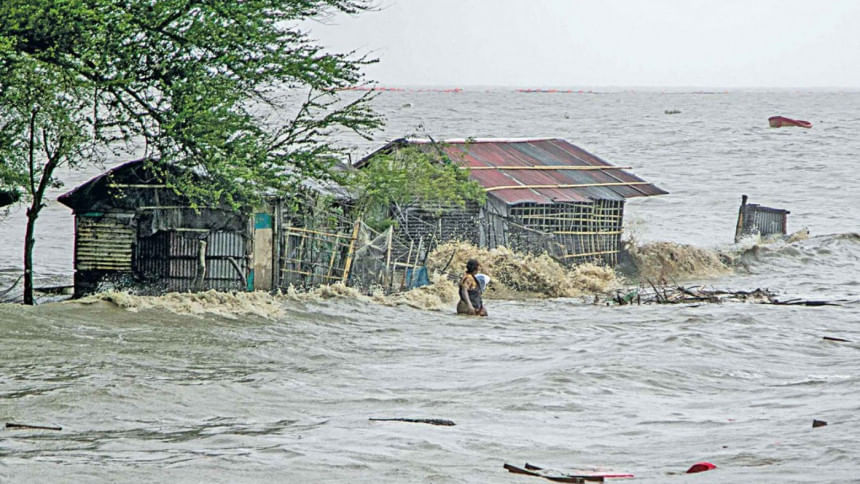Up to 17.95pc of coastal areas may go under sea by 2100

Up to 17.95 percent of the coastal areas of Bangladesh would go under sea at the end of this century due to climate change, said Environment Minister Md Shahab Uddin today.
The minister also said that only the projected sea level rise would reduce rice production in Bangladesh by 5.8 percent to 9.1 percent.
The minister said these today in parliament citing research data.
In reply to a query of Awami League MP Nurunnabi Chowdhury, the minister said, a research project entitled "Projection of Sea Level Rise & Assessments of its Sectoral (Agriculture, Water & Infrastructure) Impacts" is being implemented by the Department of Environment with the financing of Bangladesh Climate Change Trust Fund in order to assess the risk of sea level rise.
"It can be seen that in the past 30 years, the rate of sea level rise in the coastal area of Bangladesh is about 3.8-5.8 mm per year. According to the data of this study, as a result of the rise in sea level, at the end of this century, about 12.34 percent-17.95 percent of the coastal areas of Bangladesh would be submerged in the sea. The study also found that only the projected sea level rise would reduce rice production in Bangladesh by 5.8 percent to 9.1 percent."
Shahab Uddin said, without rapid and comprehensive action to curb climate change at the global level, the temperature increase in the next two decades will exceed 1.5°C above pre-industrial levels, which could increase by more than 3.0°C by 2100.
Due to the continuous increase in global temperature, the rate of ice melting in polar regions have also increased manifold, he said.
According to a research report published in the journal 'The Cryosphere' in 2021, about 28 trillion metric tons of the world's total sea ice, icebergs and glaciers have melted since the 1990s.
The report also said that the rate of ice melting is now 57 percent faster than three decades ago.
The minister said, according to a recent research report by Nasa Global Climate Change, Antarctica's ice is melting at an average rate of 150 billion tons per year, and Greenland's ice is melting at an average rate of 270 billion tons per year.
Shahab Uddin said, according to Global Climate Risk Index 202 published by Germanwatch, Bangladesh is the 7th most vulnerable country to climate change, although Bangladesh's role in greenhouse gas emissions is negligible.

 For all latest news, follow The Daily Star's Google News channel.
For all latest news, follow The Daily Star's Google News channel. 



Comments